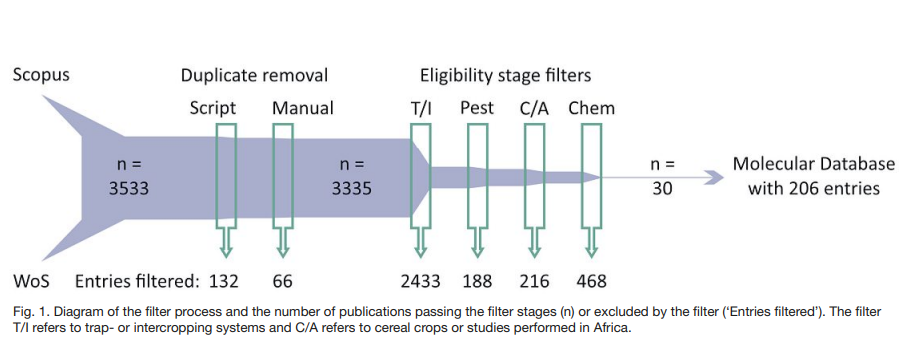Push-pull technology (PPT) employs mixed cropping for sustainable intensification: an intercrop repels or suppresses pests of the focal crop (push), while a trap crop attracts pests out of the field (pull), where they may be targeted for control. Underlying chemical-ecological mechanisms have been demonstrated in controlled settings, primarily for some of the best-established cereal PPT systems developed in east Africa. Yet, many questions remain regarding mechanisms, and strategies to adapt PPT for different crops and locations. We conducted a systematic review of scientific literature on PPT and related practices for biological control of pests of food and fodder. Of 3335 results, we identified 45 reporting on chemistry of trap- or intercropping systems for pest control, of which 30 focused on cereals or African pests. Seven of these reported primary chemical data: measurements from glasshouse and laboratory studies (5), or of field-collected samples (2). From these 30, we provide a database of compounds, discussing degrees of evidence for their mediation of push-pull. We depict hypothesized spatial distributions of selected compounds in PPT fields from physical properties and emission/exudation rates, and design of the east African cereal PPT system, and discuss influences on activity in field settings likely to affect success.
Authors: Lang, Jakob; Chidawanyika, Frank; Khan, Zeyaur R; Schuman, Meredith Christine
Contact address: meredithchristine.schuman@uzh.ch
Institution: University of Zurich, Switzerland
Twitter name of the institution:@UZH_en
Twitter link: https://twitter.com/UZH_en
Available downloads:


